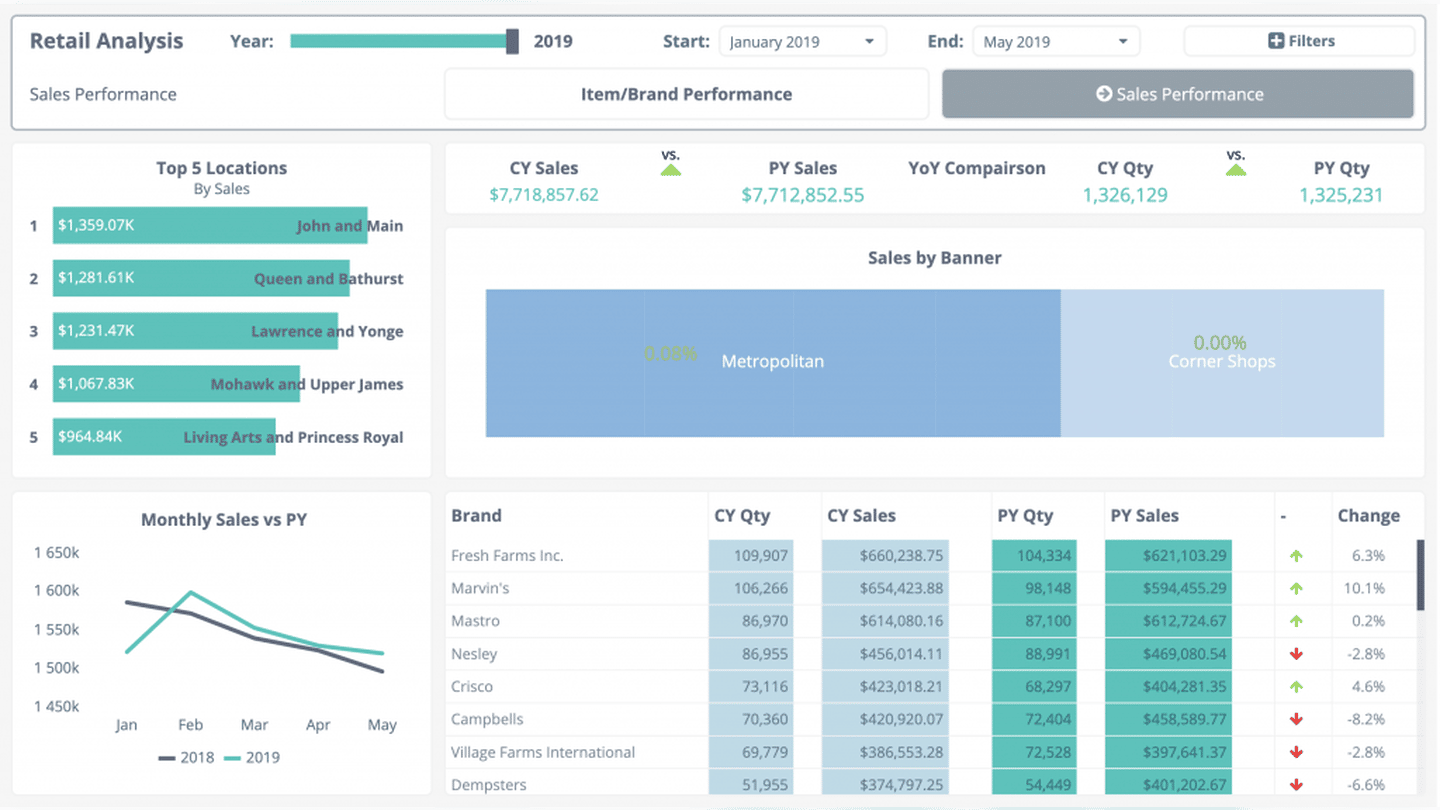This article is brought to you by Jean Lorillon, co-founder and CEO of PaletteHQ.com.
Palette is a new SaaS platform that allows Operations, Sales or Finance teams to create, optimize and monitor commission plans and variable calculations.
If you also want to write for Salesdorado, contact us!
—
It’s almost the end of the year, and you’d probably prefer to think about your next well-deserved (and hopefully unconfined!) vacation. But before that, you still have the final todo-list of the year to complete, and somehow, evil forces seem to be pouring out a steady stream of new tasks to finish…
The latest addition to this todo-list-of-danaids came when your boss asked you on Slack, “We’re communicating the new commission plan to Sales in two weeks, is that OK with you?”
“Uh-oh…”
“The commissioning plan“… yes yes… You’ve been working on it for weeks, months maybe. You know that many people in the team are following the subject closely: human resources, finance, operations, and… probably the entire Sales team!
However, the communication of the new compensation plan is a moment that offers many opportunities. This is the ideal time to communicate the sales strategy for the coming year, to specify to the sales people the objectives that will count, and those that are perceived as not very important. It’s important to get the message across, to encourage salespeople to quickly adopt the new rules of the game.
I can see you coming: “Oh, it can wait, I’ll set up a 30-minute meeting with the Sales team, it will pass…”
Failure to effectively communicate the commissioning plan can have many negative effects on the team. Instead of motivating your sales team, unclear communication can lead to suspicion and frustration. Rather than trying to understand the new plan as a whole, a few team members might focus on its shortcomings.
You may find yourself answering questions like:
- How will I track my performance? When will gas pedals be considered?
- What are the factors that could impact our commission?
- The plan has changed, but do I win or lose? Will I earn less next year?
The last thing you want is to have to revisit the plan and cause another round of back and forth with management. This could delay the implementation of the plan by several weeks and ultimately jeopardize first quarter sales.
Rolling out the new commissioning plan on time is critical to getting the entire Sales team ready to tackle the new year with their feet up. 🚀
Sommaire
The 6 elements for effective communication of your compensation plan
“A goal without a plan is called a wish.” – Antoine de Saint-Exupery
A well-designed communication plan can greatly improve your chances of getting the sales team to embrace the new plan and the company’s strategic goals.
An effective communication plan consists of six elements.
#1 First, create a clear schedule on how the commissioning plan will be rolled out.
It may seem obvious, but not all companies deploy the commission plan at the same pace, as the size of the team or the complexity of the sales cycle can greatly impact the schedule. For this exercise, reverse engineering works very well.
Start by identifying key milestones and working backwards to establish an appropriate timeline. Make sure that everyone involved in the implementation of the plan is aware of and agrees with the timeline.
Does the plan need to be implemented before or after the end of the year?
There is no single answer to this question. While the end of the year can be busy, with very little room for anything other than making final sales, we recommend not delaying the rollout of the new plan too far into the first quarter.
The sooner the sales team can start executing, the better.
#2 Document the new compensation plan
Communicating the new plan requires the preparation of a number of communication materials, depending on the scope of the changes and the size of the organization. Here are some examples of documents to prepare:
- management messages (see above),
- resources for managers, who are likely to be the first to receive feedback from salespeople,
- Frequently asked questions, to anticipate questions from the team,
- an official email to announce the plan,
- the general presentation of the plan: scope, mechanisms, calculation methods, etc..,
- a file containing, for each sales representative, information directly concerning him/her.
#3 Train your managers on the new commission plan
Managers and field supervisors are usually the most exposed to the reactions of sales people after the announcement of the new plan. A good way to support them is to organize a one-day or half-day .
Spend time detailing the plan and rehearsing what they will need to communicate to their teams.
#4 Write a reference document on the new commissioning plan
When the plan is communicated, team members will likely want to read up on the changes. Create a folder in the company’s intranet or wiki, to present:
- The general philosophy of the compensation plan: how the company compensates in relation to the market, what the strategic objectives are and why the plan had to be updated
- Administrative details: e.g. dates of entry into force, scope of application, list of persons concerned, etc.
- Compensation components: base salary, commissions, variables, etc.
- How commissions are calculated: consider including examples
- How commissions are paid;
- The description of exceptional bonuses if the plan provides for such bonuses
- Not to mention, a glossary … because well, all those acronyms…. It always helps to be precise! 😄
#5 Set up an intelligible & transparent reporting
Our favorite part about Palette!!! 🙂
A good commission system must be understandable and transparent. Each member of the team must therefore be able to understand at all times:
- The total amount of commissions to be paid in the coming months or quarters;
- For each payslip, the list of transactions taken into account in the total amount of commissions, so that salespeople can reconcile their salaries with the list of signed contracts.
- For each transaction, how much the commission is, how it is calculated and, most importantly, when it will be paid. Commissions with payment schedules that span several months are difficult to track.
- If a commission is to be adjusted (reduced or increased), a detailed description of the adjustment;
- Reporting elements: progress made since the beginning of the quarter, percentage change from one year to the next, comparison with the team, etc…
Choosing a tool that simplifies and automates the commission calculation process has many advantages:
- Free up time for your sales and finance teams to focus on what they do best.
- Knowing in real time the performance and the amount of future commissions is a very powerful motivator for the sales team.
To be effective, and to display information in real time, the commission calculation tool must integrate with CRM and ERP software, and create a single, reliable data source.
#6 At the launch, ask top management to briefly present the plan. The goal? Motivate the teams!
Like any team member, salespeople appreciate it when management shares the company’s strategy with them. This consolidates a culture of transparency and reinforces the meaning that salespeople give to their work.
The launch of a new compensation plan is therefore a perfect opportunity to rekindle the sense of belonging among teams. Take advantage of this opportunity to get your message across.
Good leadership communication can resonate throughout the organization and leave a mark on the mind and culture for the rest of the year.
6 tips for communicating your commissioning plan
- Every company, regardless of size, must carefully plan and execute the implementation and communication of the sales compensation plan.
- Sales compensation plan communication is more than just an administrative event. It is a key component of your strategy. Use it to inspire and motivate your sales team.
- Don’t overlook the negative impact that missed communication can have. There is nothing worse than starting the second quarter behind schedule because the sales team was not clear on the commission plan at the beginning of the year.
- Make sure that the entire business management is involved in the project, and validate the implementation of the plan, as well as the timeline.
- Involve managers in the communication plan. These are valuable supports that will help you get team buy-in for the new plan.
- Implement a real-time reporting and commission calculation system where salespeople can track their performance and compensation.
If you would like to learn more or implement a solution to simplify and automate the commission calculation process, please visit PaletteHQ.com or send an email to [email protected]!







